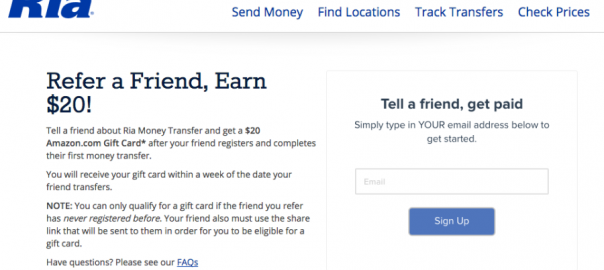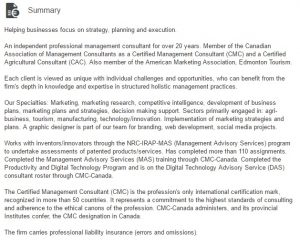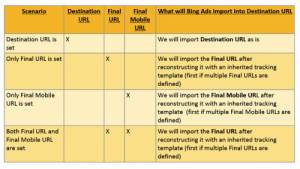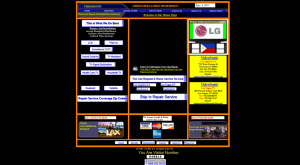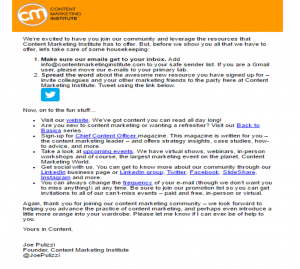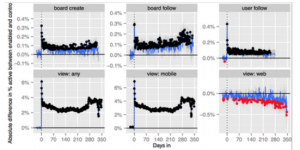Let’s set the scene. Your company caters to an audience of digital natives ranging from knowledgeable customers to intrigued fans. One group is extremely familiar with your brand and fluent in your products and services. They are the ones who leave comments, give feedback, know your Twitter handle, and begin using your hashtags as soon as they go live. The other group has heard good things about your business and is interested to see how your brand can meet their needs. They are a little more hands-off and hesitant to interact with your brand online. The only thing that separates these two groups is the stream of information between them. What’s the quickest (and most time-tested) way to bridge this gap? Word-of-mouth.
Given the modern marketing landscape, your brand has to think innovatively and be able to quantify the value of every solution that you include in your marketing stack. Sure, you could bank on the strength of your brand and the enthusiasm of your existing customers. Or your company could seek the type of insightful and powerful interactions that occur between social channels and personal networks. That’s where automated refer-a-friend programs come in.
At the core, each refer-a-friend marketing program is composed of the same elements: a business interested in driving new revenue, eager incoming leads, and an engaged existing audience. Automation and strategy is what sets every program apart. If each step of your company’s refer-a-friend campaign isn’t followed by an equally easy-to-understand function and housed within a seamless experience, then your company could be missing the mark. A completely seamless refer-a-friend campaign is greater than the sum of its parts. In fact, it could be the heartbeat that keeps the body of your business up and running.
Let’s dissect the anatomy of a successful refer-a-friend campaign:
The Backbone

The Leopard & Lavender blog recommends Litter-Robot’s automatic, self-cleaning litter box to readers.
A recent survey conducted online by Harris Poll on behalf of Ambassador revealed that 82% of Americans say they seek recommendations from friends and family when considering a purchase. The traditional network of influential recommendations is reinforced by digital interactions via social media. For example, the above Facebook post from the Leopard & Lavender blog links to an article that offers readers a unique code for their next Litter-Robot purchase. Partnerships like this incorporate the company’s customer base and the blogger’s audience.
Through shareable, unique links that serve as recommendations for your brand, your company can track and monitor these relationships. Instead of allowing discussions within your audience to go unacknowledged, automated refer-a-friend campaigns bring customer conversations to the center of your attention and the core of your marketing strategy.
A Firsthand Account

Bench customers are prompted to enter a dual incentive, refer-a-friend program.
Each member of your audience will be an integral part of your refer-a-friend campaign, but the most successful campaigns ensure that customers can monitor their personal progress. With an automated refer-a-friend program, your company can provide a highly interactive portal and support individual customer accounts, similar to the Bench example above. This portal should not only track the sharing activity within your refer-a-friend program, but also display the respective followings that individual customers have across social media platforms. The information gathered from these accounts empowers your customers to be proactive, while giving your company a strategic advantage. Your customers’ referral behavior can lend insight on how to segment customers and decide which ones to assign to specific campaigns or social media outreach in the future.
A Leg Up

Ria rewards referrers with cash.
One of the most satisfying experiences of any refer-a-friend campaign is the reward process. The most successful refer-a-friend programs incentivize rewards that match the level of engagement or amount of new revenue that your referrals have provided. Ria, a financial services company, has adopted a cash payout system that aligns with their industry and customer preferences. Although rewards may vary from company to company or campaign to campaign, the payout should be as seamless as every other aspect of your referral process. According to a recent survey conducted online by Harris Poll on behalf of Ambassador, 88% of Americans say they would like some sort of incentive (money, product or service, loyalty points, early access, swag) for sharing a product via social media or email.
Putting Your Best Foot Forward
The best way to protect your refer-a-friend marketing ROI is to mimic an actual friendship. Companies should strive to create a reciprocal exchange punctuated by helpful information and valuable experiences. Although word-of-mouth can bring your customers and leads together, a refer-a-friend campaign empowers your business to monitor, track, and reward these interactions. Now that you understand the working parts of developing a successful refer-a-friend campaign, it’s time to put your best foot forward.
Business & Finance Articles on Business 2 Community
(139)
Report Post